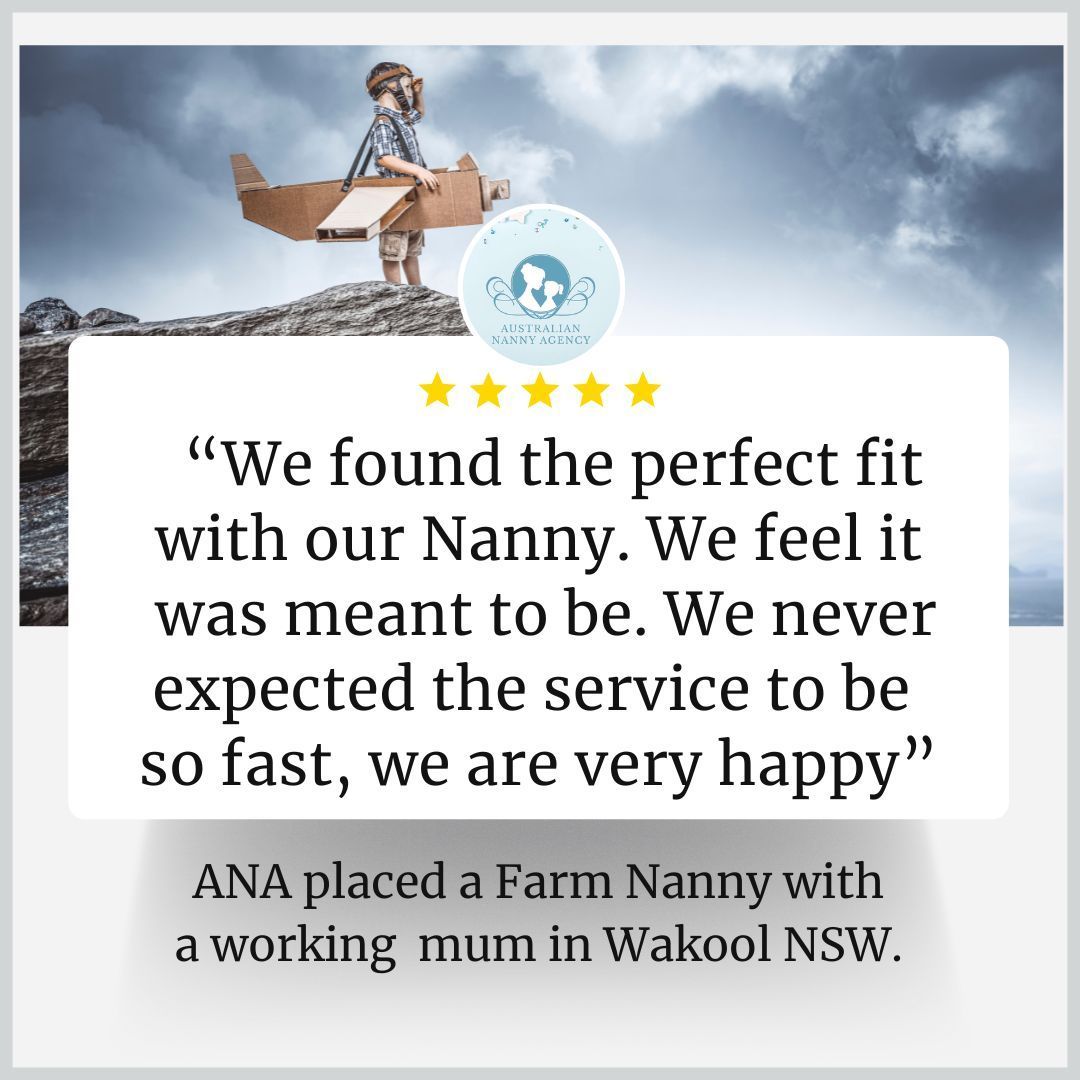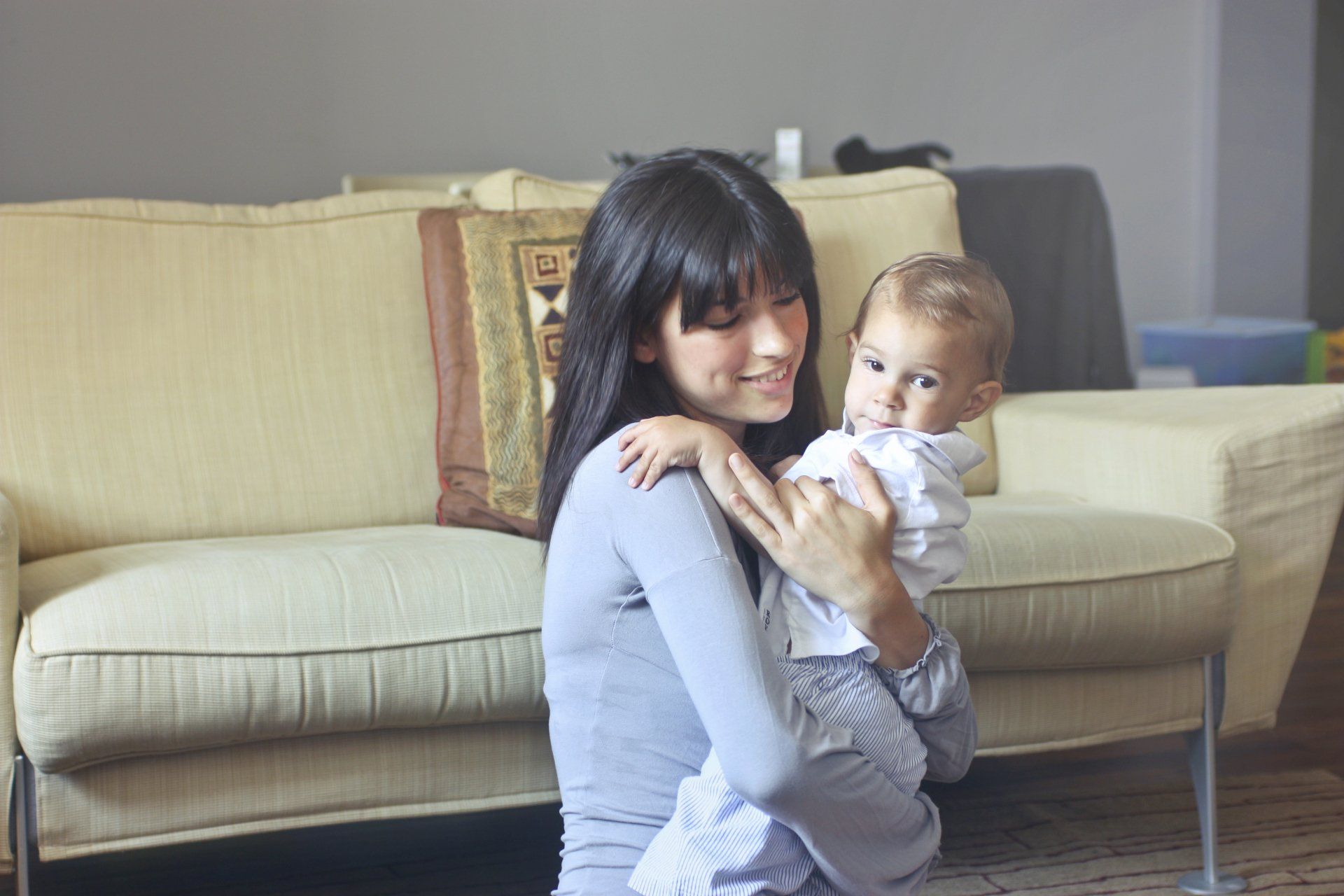How Much Do International Nannies Earn?
More Nanny LearningNannies typically earn between $2000 - $3000 a week tax free, depending on factors like location, experience, and the number of children they care for. In some areas, salaries can be higher, especially for live-in nannies or those with specialized skills.
What qualifications or experience do I need to become a international nanny?
To become a nanny, families may prefer candidates with a degree in child development or education. Relevant experience in childcare. Certifications in CPR and first aid, and having a clean background check is crucial. Strong references and good communication skills.
How do I find families looking for a nanny?
Register with Us!There are various site and facebook groups you can search to find a family to work with, however ageincies will advocate for fair wages and condtions. visit our Job board , and register with us.
What should I include in my resume or profile when applying for nanny positions?
Include the following in your resume or profile for nanny positions:
1. Contact Information
2. Objective Statement
3. Experience
4. Education
5. Skills
6. References
7. Background Check
What are some important skills or qualities that make a great nanny?
A great nanny should possess a combination of essential skills and qualities, including:
1. Patience
2. Communication
3. Empathy
4. Creativity
5. Reliability
6. Adaptability
7. Safety Awareness
8. Organizational Skills
How do I handle challenging behaviors or conflicts with the children I care for?
To handle challenging behaviors or conflicts with children, remain calm and composed. Use positive reinforcement to encourage desired behaviors, set clear and consistent boundaries, and communicate openly with the child to understand their feelings. Employ active listening and problem-solving strategies to address the issue, and model appropriate behavior
Do I need a background check to be a nanny?
Yes, many families require background checks to ensure safety and trustworthiness.
Whats the difference between and nanny and a babysitter?
Nannies often have a more involved, long-term role in child care, while babysitters typically provide short-term care.
What are my responsibilities as a nanny?
Responsibilities may include childcare, meal preparation, educational activities, and light housekeeping related to the children.
How do I find a nanny Job?
ou can find nanny jobs through online job boards, nanny agencies, local community boards, or word of mouth. Howerver using a nanny agency who advocates for you is best.
What should I include in my nanny resume?
Include your relevant experience, education, certifications, and any special skills related to childcare.
Is being a nanny a good career?
Yes, many find it rewarding, especially if they enjoy working with children and have a passion for caregiving.
What is a maternity nurse?
A maternity nurse provides care for mothers and newborns, assisting with feeding, bathing, and education about newborn care.
How do I get 5 contactable references?
Obtaining five contactable references can be important for job applications, professional networking, or other situations where you need to provide credible endorsements of your skills and character. Here are some steps to help you gather effective references:
Identify Suitable References
Professional References: Consider former supervisors, managers, or colleagues who can speak to your work ethic, skills, and achievements.
Academic References: If you are a recent graduate, professors or academic advisors can serve as valuable references.
haracter References: Personal contacts, such as mentors, volunteer coordinators, or community leaders, can provide insights into your character and values.
How do I renew my first aid yearly?
To renew your first aid certification yearly, you typically need to complete a refresher course offered by a recognized training organization. Check with your certifying body for specific requirements, registration options, and course schedules.
What is it like working in Middle East
Working in the Middle East can be an exciting adventure! The region is known for its rich culture, diverse communities, and vibrant social life. You'll have the opportunity to experience unique traditions, delicious cuisines, and stunning landscapes. Many cities are modern and cosmopolitan, offering a dynamic work environment with opportunities for professional growth. Additionally, the warm hospitality of the people and the chance to network with international colleagues can make for a rewarding experience. Plus, you might find time to explore beautiful deserts, historical sites, and luxurious resorts on weekends!
What experience do I need to work in Middle East?
To work as a nanny in the Middle East, you typically need experience in childcare, a background in CPR and first aid, and sometimes a specific qualification in early childhood education. Familiarity with cultural norms and languages spoken in the region can also be beneficial. Additionally, a positive attitude, adaptability, and strong communication skills are essential.
How do I get experience to work as a nanny?
To gain experience as a nanny, consider babysitting for family or friends, volunteering at local childcare centers or schools, taking childcare courses, or obtaining certifications in CPR and first aid. Additionally, seek out internships or part-time positions in childcare settings to build your resume.
I have baby sitting experience can I work overseas?
No, you typically need specific work permits or visas to work overseas, and training as a nanny even with babysitting experience.
How do I start as a nanny?
To start as a nanny, follow these steps: Volunteer or babysit to gain experience with children.
Consider obtaining CPR/First Aid certification and taking a childcare course.
Highlight your experience, skills, and any relevant certifications.
Ask friends, family, or local parenting groups for opportunities.
Sign up on nanny-specific job websites or apps.
Be ready to discuss your childcare philosophy and provide references.
Be open to a background check, as many families require it.
How do I train as a nanny?
To train as a nanny, consider the following steps:Obtain a high school diploma or GED; some positions may require a degree in child development or education.
Complete a nanny training program or courses in childcare, first aid, and CPR.
Gain hands-on experience through babysitting, volunteering, or internships.
Be prepared for background checks, as many families require this for their nannies.
References: Build a network of references from families or childcare professionals.
Enhance skills in communication, organization, and child development.
Consider joining nanny associations for additional resources and support.
What qualifications do I need to become a nanny?
To become a nanny, you typically need a high school diploma or equivalent, although some families may prefer candidates with a college degree in child development or a related field. Experience with children, whether through babysitting, childcare roles, or volunteering, is essential. Many nannies also benefit from first aid and CPR certification. Strong communication skills, patience, and a genuine love for working with children are crucial qualities that families look for. Background checks may also be required.
What age do I need to be to work overseas?
Is it dangerous to work as a nanny overseas?
Why do nannies earn so much?
How many years experince do I need to work as a nanny in Australia?
What is a maternity nurse?
Why do maternity nurses earn so much?
How to train as a maternity nurse?
Do I need to be a maternity nurse to work with babies?
No, you do not necessarily need to be a maternity nurse to work with babies. While being a maternity nurse requires specific training and qualifications, there are various other roles and opportunities where you can work with infants. Some alternatives include:
Pediatric Nurse: Provides care for infants, children, and adolescents, requiring specialized training in pediatric nursing.
Childcare Provider: Jobs such as daycare worker, nanny, or babysitter involve caring for babies and young children without needing formal nursing credentials.
Lactation Consultant: Specializes in breastfeeding support and education, often requiring certification.
Early Childhood Educator: Focuses on the development and education of young children, including infants.
Why do I need to be insured to work as a nanny?
Being insured as a nanny is important for several reasons:
Liability Protection: Insurance can protect you from potential lawsuits or claims that may arise from accidents or injuries that occur while you are caring for children. If a child gets injured or damages property, liability insurance can cover legal fees and settlements.
Nanny insurance in Australia how do I find it?
Finding nanny insurance in Australia involves several steps to ensure you get the right coverage for your needs. Here’s a guide to help you through the process:
Understand Your Needs: Determine what type of coverage you require. Common types of insurance for nannies include public liability insurance, professional indemnity insurance, and personal accident insurance.
Research Insurers: Look for insurance providers that specialize in nanny or childcare insurance. Some companies may offer specific policies tailored for nannies and childcare providers.
Compare Policies: Use comparison websites to review different insurance policies. Look at coverage limits, exclusions, premiums, and excess amounts. Make sure to read the fine print.
Seek Recommendations: Ask other nannies, childcare providers, or parenting groups for recommendations on insurance providers they trust.
Can I work as a nanny in Europe, what visa do I need?
Working as a nanny in Europe typically requires a specific visa, which can vary depending on the country you wish to work in and your nationality. Here are some general guidelines:
EU/EEA Citizens: If you are a citizen of an EU or EEA country, you generally have the right to work in any other EU or EEA country without needing a visa.
Non-EU Citizens: If you are a non-EU citizen, you will usually need to obtain a work visa or permit specific to the country where you want to work. Common types of visas for nannies include:
Work Visa: Many European countries offer work visas for specific job categories, including childcare. You may need a job offer from a family in the country where you plan to work.
Au Pair Visa: Some countries have specific visas for au pairs, which can be applicable if you are taking care of children in exchange for room and board plus a stipend.
Temporary Resident Visa: In certain cases, a temporary resident visa might be available if you can prove your employment as a nanny.
Working as a nanny where do I start?
Starting a career as a nanny can be a rewarding experience. Here are some steps to help you get started:
Self-Assessment: Reflect on your skills, interests, and experiences with children. Consider your strengths, any relevant qualifications, and your comfort level with various age groups.
Research the Role: Understand what being a nanny entails. This includes not just childcare but also responsibilities like meal preparation, organizing activities, helping with homework, and possibly light housekeeping.
Gain Experience: If you haven't already, gain experience working with children. This could be through babysitting, volunteering at schools or daycare centers, or caring for younger siblings. The more experience you have, the better.
Obtain Certifications: While not always required, certifications can enhance your credibility. Consider getting CPR and First Aid certification, as well as any childcare or early childhood education courses.
Create a Resume: Highlight your relevant experience, skills, and any certifications. Tailor your resume to emphasize your childcare experience and any other relevant skills.
How do I become a housemanager?
Understand the Role
A house manager is responsible for overseeing the daily operations of a household, which may include managing staff, coordinating schedules, handling budgets, and ensuring that the home runs smoothly.
2. Acquire Relevant Skills
Organization and Time Management: Ability to manage multiple tasks efficiently.
Communication Skills: Strong verbal and written communication for interacting with household members, staff, and vendors.
Problem-Solving: Ability to address issues that arise quickly and effectively.
Budgeting and Financial Management: Some knowledge of household budgeting and expenses.
Leadership Skills: Experience in managing and leading a team.
Do housemanagers earn alot of money?
he salary of a house manager can vary widely based on several factors, including location, the employer's needs, the level of experience required, and the specific responsibilities of the position. In general, house managers can earn anywhere from $90,000 to over $200,000 per year. In high-end households or luxury estates, experienced house managers may earn even more, sometimes exceeding $250,000 annually.
Do I need to train as a housemanager?
Whether you need training as a house manager depends on various factors, including the specific requirements of the job you are seeking, the preferences of your employer, and your existing skills and experience. Here are some considerations:
Job Requirements: Some positions may require formal training or certifications, while others may prioritize experience over formal education.
Skills Development: House management involves a variety of skills, including organization, budgeting, scheduling, and interpersonal communication. If you feel you need to improve in any of these areas, seeking training could be beneficial.
Employer Expectations: If you are applying for a position, it’s a good idea to research the employer's expectations. Some employers may prefer candidates with specific training or experience, while others may provide on-the-job training.
First aid courses for nannies are they specialized?
es, first aid courses for nannies are typically specialized to address the unique needs and situations that may arise when caring for children. These courses often cover topics specifically relevant to child care, including:
Pediatric CPR and First Aid: Techniques for performing CPR and first aid on infants and children, which differ from adult procedures.
What is working with children check?
A Working with Children Check (WWCC) in Australia is a background screening process designed to assess the suitability of individuals to work or volunteer with children. Each Australian state and territory has its own specific requirements, but the general purpose of the check is to ensure the safety and well-being of children by identifying any criminal history or relevant concerns that may indicate a risk.
What is a DBS check?
A DBS check, or Disclosure and Barring Service check, is a process in the UK used to assess the suitability of individuals to work with vulnerable groups, including children. This check is particularly relevant in the context of childcare, as it helps ensure that individuals who are employed or volunteer in settings where they care for children do not have a history of criminal behavior that would make them unsuitable for such roles
What is a police check?
A "police check" in the context of childcare refers to a background check conducted to ensure that individuals working with children do not have any criminal history that would pose a risk to the safety and well-being of children. This process typically involves checking an individual's criminal record and may include reviewing any allegations of child abuse or neglect.
What is a Background check?
A background check in childcare is a process used to evaluate the history and qualifications of individuals working with children to ensure their safety and well-being. This process is crucial for anyone who will have direct or indirect contact with children in a childcare setting, such as daycare centers, preschools, or after-school programs.
What does ECT mean?
In the context of childcare, "ECT" typically stands for "Early Childhood Teacher." An Early Childhood Teacher is a professional who is trained to educate and care for young children, usually from birth to around eight years old. They play a crucial role in the development and learning of children during their formative years, focusing on various aspects such as cognitive, social, emotional, and physical development.
What does educator mean?
In the context of childcare, an "educator" refers to a professional who is responsible for fostering the development and learning of young children, typically in settings such as preschools, daycare centers, or early childhood education programs. Educators in childcare play a crucial role in creating a safe, nurturing, and engaging environment where children can explore, learn, and develop various skills.
What is the highest salary for a nanny?
The highest salary for a nanny in the Middle East can vary widely based on factors like location, experience, and specific job requirements, but it can reach up to $2,000 to $3,000 per week or more in some cases.
What is a hybrid nanny?
Hybrid nannies are nannies that are responsible for direct childcare in the home, in addition to other household related tasks that can include, but are not limited to, family laundry, transporting to and from activities/appointments, running family errands, meal prep,cooking ect
How many types of nannies are there?
Nannies vary in roles and experience there are over 10 types of nannies and even household help. Daily nanny, live in nanny, part time nanny, princess nanny, international nanny, travel nanny, baby nanny, afterschool nanny, Hybrid nanny, pet nanny and materinty nanny to name a few.
Who is the most famous nanny?
Easliy the most famous nanny of all time is Mary Poppins, everything is fun — even cleaning up. Mary turns everyday chores and errands into fun games, she teaches Jane and Michael how to see life differantly and is a psotive role model.
What is the difference between and professional nanny and a nanny?
Professional nannies are highly trained, valued qualifications, and expertise to their role, while nannies may have varying levels of training. Choosing between a professional nanny and a nanny depends on the needs and preferences of each family, each nanny is different.
AUSTRALIAN NANNY AGENCY
FAQs
Latest articles for a parents and nannies

By Justine Murray
•
February 28, 2025
Having a newborn baby, especially your first, is a wonderful and exciting time, but can also be an overwhelming time, filled with new responsibilities and challenges. The first few months can leave you feeling exhausted, emotional, and very stressed with the new routine, changes to your body and your baby. Breastfeeding can be a big part of the stress during this time. But there are many ways to get help with this. A great option is to hire a Maternity Nurse to help you with breastfeeding, relieving some of the stress and creating a positive experience. So how does hiring a Maternity Nurse help with breastfeeding? How do they help? A Maternity Nurse is a postnatal specialist and carer. Their expertise covers all elements of newborns, babies, and new mothers. They particulary skilled and experienced in newborn care and in supporting, teaching and ensuring are left feeling confident in their journey as new parents. A encouraging source of knowledge. Helping so many mothers through those first amazing days, weeks and months, of the journey of being a parent, hiring a Maternity Nurse is an investment in your family , definitely worth making. They will work with you to establish a routine regarding breastfeeding and work out a way how that can fit in with you, and your baby. Having someone there to make a structured plan will help you to relax more, focus on the tasks at hand knowing that you are on the right path, and that your Maternity Nurse is making sure everything is going to plan and adjust where needs be! Breast feeding Skills Breastfeeding is a skill, and it can be extremely challenging. Not all mothers adapt naturally, and in some cases may not be able to breastfeed at all, or for as long as they initially thought. It can be painful, stressful, and very difficult to commit to. This is one of the main issues your Maternity Nurse will help you with. They can show you all of the right and most comfortable, breastfeeding skills and techniques. Rather than having to struggle through it yourself, by hiring a Maternity Nurse they will give you all the tips and tricks. They will observe and make adjustments if needed, to ensure your baby is getting enough milk throughout the process. When the time comes for your Maternity Nurse to leave, you will have established a breastfeeding routine and obtained all the skills and confidence needed to keep you and your baby happy and healthy! General Support Hiring a Maternity Nurse will give you so much more than just help with breastfeeding though! They are there to support you with anything you can think of regarding your new-born. They will teach you the essentials of childcare, help you recover from birth and give you the confidence to take care of the baby yourself. Your Maternity Nurse will often be hired for approximately 12 weeks on a 12/7 or 24/7 basis. Meaning they can also cover night shifts – so that they are always there if needed during those first crucial weeks and months! Maternity Nurses come with all the suitable training and qualifications. From how to breast and bottle feed, sleep, bathing, routine and comfort techniques etc. More highly qualified Maternity Nurses can behold advanced knowledge in complex feeding issues, gut health, and birthing and may also have osteopathic, obstetric, and psychological knowledge, such as how to deal with and support postnatal depression. How can the Australian Nanny Agency Help? Australian Nanny Agency work with families all over the world, finding the most suitable Maternity Nurses for them and for their situation. Australian Nanny Agency have a wide variety of amazing Maternity Nurses on their books ready to help you and your new family. Whether this is for a couple of days or several months, we can find the right person for you. To find out more about what options work best for you do contact us here now and we look forward to speak to you!
© 2025
PC Murray Pty Ltd t/as Australian Nanny Agency | Privacy Policy | Website by PC Murray Pty Ltd








